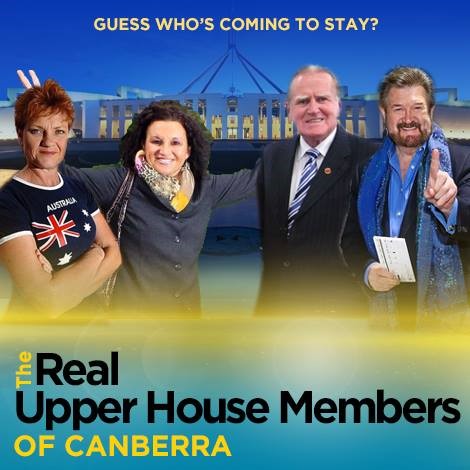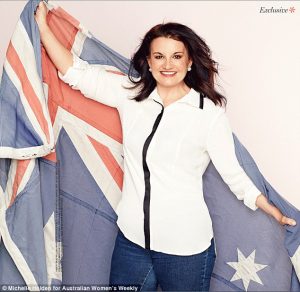While the outcomes in both houses of Parliament are still at the nail-biting stage after last weekend’s surprisingly close election, and the vote counting continues for some extremely tight lower house seats and the Senate, it is clear that the double dissolution election has created an upper house that might be doubly difficult for either of the major parties to deal with when it comes to trying to pass legislation.
But what could it mean for foreign aid?
While budget measures that don’t involve legislation, such as annual aid budget allocations, won’t require fights in the Senate, it’s looking like no matter which party forms government, they will need to be in deal-making mode. In the past foreign aid has been used as a bargaining chip (the Harradine case, where aid for family planning was traded off to get the votes to privatise Telstra, being the most famous example), as well as used ‘like an ATM’ to fund other initiatives and priorities.
There’s also the chance that some of the highly vocal anti-aid crossbenchers (Jacqui Lambie and Pauline Hanson, for example) will influence public opinion and policy.
So in this context, the crossbenchers’ views on aid will be well worth knowing about.
We’ve already covered off major parties’ platforms on the blog. But here’s a quick guide to the parties and characters that look likely to score seats on the Senate crossbench, and their views on Australia’s aid program and development issues more broadly. They are ordered from the (probable) largest Senate presence to smallest, based on predictions from the ABC’s election tsar, Antony Green.
The Greens
- The Greens look likely to have 5-9 seats in the Senate.
- They are very pro-aid. They have a policy to increase aid to 0.7% of GNI by 2025-26.
- The Greens also intend to legislate for aid transparency, accountability and evaluation.
- The Greens advocate strong action on climate change, including additional funding for international measures.
- Want to end offshore detention of asylum seekers and increase Australia’s refugee intake.
- More details in our earlier election analysis and in Greens’ answers [pdf] to questions from ACFID.
One Nation
- Will definitely have leader Pauline Hanson in the Senate, as well as a possible 2-3 other Senate positions.
- Hanson in the past has been completely against all foreign aid. One of her party officers in a 2014 blog wrote that “One Nation calls on the government to reduce foreign aid to 2 billion dollars annually until the country’s budget is in surplus”. So it is unclear whether the party wants to end foreign aid completely or just drastically cut it. The phrase “charity begins at home” appears on their page on refugees and immigration.
- Their climate change policy argues for the end to Australia’s contributions to international climate finance: “Cancel all agreements obliging Australia to pay for foreign Climate Action and payment to the United Nations and foreign institutions.” It also accuses the United Nations of influencing climate scientists at the CSIRO via research funding and calls for a Royal Commission into climate science.
- The party has a strong anti-immigration stance. They do not make comment on refugee quotas or policy but do say that “genuine refugees” should be able to access a two-year temporary protection visa, while at the same time advocating for Australia to terminate its signatory status to the UN Refugee Convention.
- The party is also anti-“sustainable development”. The party believes sustainable development agenda will rob people of their liberties, including the rights to private ownership of land.
- Their policies in general show a deep distrust and lack of understanding of the role of multilateral institutions such as the UN and World Bank, i.e., “Bring back federalism and restore Australia’s constitution so that our economy is run for the benefit of Australians instead of the United Nations and unaccountable foreign bodies that have interfered and have choked our economy since the federal government handed power to the International Monetary Fund in 1944”.
 Nick Xenophon Team
Nick Xenophon Team
- Looks set to have 2-3 Senate spots, all in South Australia.
- Supports the 0.7% ODA/GNI target.
- Supports restoring the cuts made to aid in the 2014 budget – which Xenophon called “mean, nasty and dumb”.
- The party has made no particular mention of international climate policy or financing in its platforms, but is pro-renewables and believes climate change to be a significant issue.
- Supports offshore processing with timely resettlement. Also supports UNHCR involvement and free access to detention centres for media and international organisations/NGOs. One of the likely NXT Senators, Skye Kakoschke-Moore, has lived in the Middle East and worked for the Australian Refugee Association.
- Nick Xenophon himself has previously supported motions on raising aid to 0.7% in parliament.
- Update – an eagle-eyed reader pointed out that Xenophon called for “[t]he government to buy milk powder to be used as foreign aid” during this year’s dairy crisis, which could point to a preference for aid to be used to support Australian business.
- Jacqui Lambie herself will return to the Senate for Tasmania.
- She is against foreign aid and has an official party platform on it. “JLN supports a halving of the Foreign Aid Budget in order to help boost federal government investment in Higher Education from .6% to 1% of GDP… JLN makes no apology for putting poor Tasmanians and Australians first – before any other country’s people. Charity begins at home.”
- She is particularly opposed to foreign aid to Indonesia, and at one stage called for it to be redirected to Nepal following the execution of the Bali 9 and Nepal’s earthquake, and has repeatedly called for aid to Indonesia to be ended.
- In various stages during her previous term in the Senate, she wanted the aid budget cut and given to pensioners, cut and given to Tasmanian flood victims, cut and directed into childcare, cut and given to welfare recipients and the homeless, and just given to Tasmania because it had been “neglected” by the Federal government. She has also advocated for sending Australian manufactured goods to developing countries as a replacement to current aid modalities.
- Hanson and Lambie share views on aid, but Lambie refused to swap preferences with One Nation in Tasmania, so it is unclear if they would work together as a block.
- Lambie believes in climate change. She has said she would only support an ETS or carbon price if there was a binding international agreement on this.
The Derryn Hinch Justice Party
- Looks highly likely that Derryn Hinch himself will be in the Senate.
- He has no foreign policy or formal foreign aid platform.
- He has in the past, he has supported causes such as the 1985 Ethoipian famine, but also criticised NGO administration costs.
- He has previously argued for Australia to increase its refugee intake.
- He has made limited comments on climate change.
- Has signalled that he won’t be aligning with crossbenchers such as Pauline Hanson and has expressed that he is “not looking forward” to being in the Senate with her. They have previously fought with each other on television on the refugee issue.
Katter Australia Party
- May win one Senate seat – still in doubt.
- Does not have a specific foreign aid policy, but policies in general could be described as isolationist and protectionist.
- Party believes climate change is real, but policy only has a domestic focus.
- Party leader Bob Katter has previously criticised aid workers going to help the Ebola outbreak, and has suggested Australia buy excess cattle and give them to Indonesia as foreign aid during the Queensland cattle crisis.
Christian Democratic Party (Fred Nile Group)
- May win one Senate seat – still in doubt.
- Very conservative.
- Does not have a foreign aid policy. However, one of the party’s principles is “To advance the cause of social justice for all: the under-privileged, the unemployed, the handicapped, the elderly, the displaced.”
- In a pre-election newsletter [pdf], they criticised the Turnbull government for falling short in “allocating funds for international aid for persecuted Christians”. We found no other indications of their stance on aid volume or allocations, though many candidates expressed concern in the same newsletter about persecuted Christian minorities overseas.
- Party holds strong anti-abortion/family planning, anti-LGBTI and anti-Muslim views.
- Party leader Fred Nile has previously called for a 10 year moratorium on Muslim immigration – this is not official party policy, but the party has anti-Halal and anti-Shariah Law policies [pdf]. Nile was supportive of the Abbott government’s intake of Syrian refugees, but said that priority must be given to those who were Christian.
- Party believes [pdf, p. 33] climate science is “unresolved” and does not support Australia being a party to any international climate agreements “that are not in our best interests”.
Liberal Democrats
- Could secure a seat in the Senate – still in doubt. If they do, Senator David Leyonhjelm will be returned.
- Senator Leyonhjelm has previously called for a doubling of our refugee intake, to be paid for from the aid budget. He has also argued for aid to Indonesia to be cut.
- The party’s full policy on foreign aid is available here. It states that: “Aid to foreign countries by the Australian government, other than short term humanitarian relief following natural disasters, should cease.”
- Argues that “donations by private individuals to foreign aid projects should neither be encouraged nor discouraged by the government”.
- Also argues for transparency of NGO and donation reporting.
Family First
- Could still secure a seat in the Senate – this is still in doubt. If they did, this would be a seat for Senator Bob Day from South Australia.
- Senator Day has previously campaigned for Australian aid to be increased to 1% of GNI. Has also expressed support for the 0.7% of GNI target.
- He has questioned the government about aid cuts multiple times in the Senate and given a speech on the positives of Australian aid (see here and here for examples).
- The party has a very sceptical stance on climate change.
- Family First responded to ACFID’s questionnaire on aid ahead of the election – they are broadly supportive of Australian aid, yet have some non-traditional ideas about how it should be spent (i.e., that it should all go to NGOs). Read their response here [pdf].
Because of the double dissolution, the Senate itself, once finalised, will then decide who gets to stay for a full Senate term (six years), and who will only stay for three before facing the polls again. So that will add another level of complexity to how everyone gets along in the Upper House.
If you know more about any of the views of Senators-elect on aid or development, let us know in the comments. No matter what happens, we are in for interesting times.
Ashlee Betteridge is a Research Officer at the Development Policy Centre.



Leave a Comment